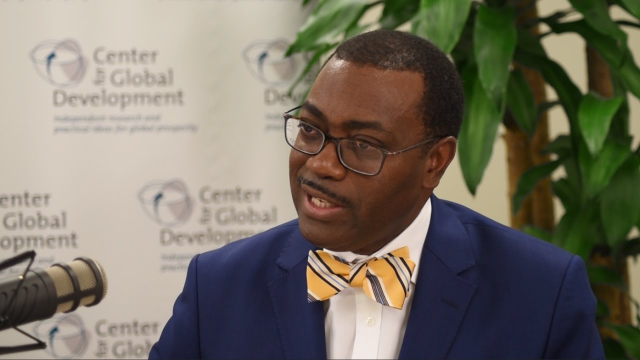On the occasion of World Health Day 2019, the African Development Bank Group (AfDB) is renewing its call for firmer commitment to pledges made by countries for universal health coverage for all individuals and communities.

In a statement issued on Sunday, April 7, 2019, Oley Dibba-Wadda, Director of Human Capital, Youth and Skills Development at the bank, said: “AfDB supports national efforts to accelerate investments in Universal Health Coverage. It recognises that inclusive economic growth must be accompanied by strong efforts to improve equitable access to care for vulnerable individuals and communities. Due consideration will also be given to complementary investments in education and skills development as well as jobs for youth.”
The bank’s advocacy and support for Universal Health Coverage goals is said to be hinged on its commitments and continued support for Africa’s health sector goals, and calls by development experts for increased public and private investment in primary healthcare, which is the foundation of “Universal Health Coverage” (UHC), the theme for this year’s World Health Day.
At least half of the world’s population still do not have full coverage of essential health services, according to the World Health Organisation (WHO) and global development organisations, who have jointly defined UHC as individuals and communities being able to receive basic health services without suffering financial hardship. The journey towards UHC also means taking steps towards equity, focusing on development priorities, social inclusion and cohesion, they added.
Health experts at the AfDB are also advocating for institutional investments in data management and data analytics technology, to better track health sector developments and trends at national and sub-national levels. These measures are needed to recalibrate the sector’s job creation potential, deepening its contributions to economic and social development.
World Health Day 2019 has been described as a timely opportunity to focus on the inclusion of Africa’s health work force in the development agenda. African countries, with the support of the bank, can begin to craft a new vision for the health sector as a key contributor to Africa’s drive for skilled jobs creation for the youth. An estimated six million missing jobs are required each year across the continent.
Dibba-Wadda further observed that mitigating poor health outcomes, preventing malnutrition and consequently achieving UHC in Africa would require pro-active measures by stakeholders to integrate cost-effective interventions into regular healthcare plans and systems.
“The bank remains fully committed to addressing malnutrition in Africa, in all its ramifications. Available data for 2018 shows that 58.7 million children in Africa were stunted, 13.8 million children were wasted, and 9.7 million children were overweight.”
